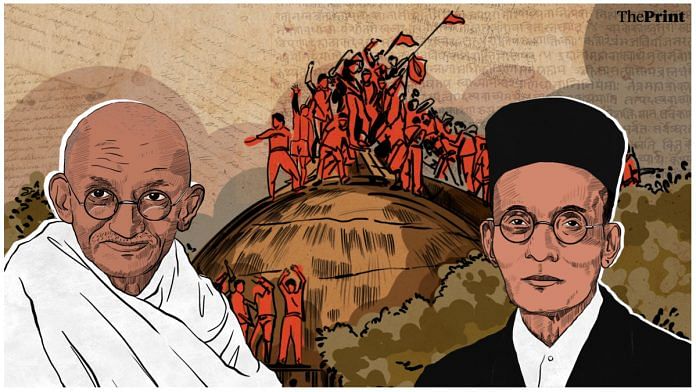The Western world did not ignore its oppressive past – whether slavery, indentured migration or world wars. It discussed, debated and tried to repair the wrongs – through symbolic or substantial reparation. However, in the process, Western countries also recreated and reshaped the past based on their national interests. In India, we portrayed our past in a way that selectively ignores certain moments in history that make us uneasy, uncomfortable, or can create conflict. This is why, even after 75 years of Independence, we are seeing a clamour for correction or re-reading of history – be it the Gyanvapi mosque, Somnath temple, or Ayodhya. There is also the demand to re-examine our history books so as to explore India beyond the Delhi sultanate and Mughal rulers.
Instead of dismissing this new investigation of history in Narendra Modi’s India as a biased project, it’s time we faced our past as it was. And this resurgence of conflicts isn’t only happening in India, world over we are seeing claims of reparations, heritage, affirmative action and religious justice – the US to Istanbul to Bangladesh. Wherever modernity tried to break with the past, it failed and evolved into a Janus face that looks ahead and behind simultaneously. That’s what is happening in India today. We ignored the past for so long that it is re-appearing time and again to hurt us.
India can’t escape the past
For decades, there was selective remembrance of Islamic conquests to help India postpone or avoid certain religion-based conflicts in society. But this method to deal with the past hurt a section of Indians. Over time, this hurt produced an arrogant and aggressive attitude towards the past. It created a body of ignored, marginalised and aggressive history.
Many Hindu groups raised the issue of religious injustices, and when they found conducive political ambience, they raised their claims over religious sites and monuments. They also demanded names of cities, towns, kasbas, and railway stations be changed.
Now it has become almost common knowledge that Islamic warriors attacked, conquered and demolished Hindu religious sites and rebuilt structures over them. These stories are also now being disseminated by the news media and social media. This perception is one of the most important constituents of Hindutva today – correcting historical injustices against Hindus, whether medieval, modern or post-Independence. Similar perceptions of the past motivated Muslims too – they claimed the Hanuman Garhi temple in Ayodhya around 1855, which resulted in clashes, bloodshed and gave rise to the Babri Masjid conflict.
Also read: Was there a Mughal bias in Indian history textbooks? Yes, but not a Muslim one
What we can do now
How should India respond to these uncomfortable and inconvenient questions about the past today? We need to rebuild a ‘samaras’(harmonious) society that works towards religious and cultural amity.
To achieve this goal, we need to respond to our past in a sensitive and balanced way. For that, we need to first address the past by researching and studying it thoroughly. There is a need for in-depth research on India’s heritage places and important religious sites. This study must be academic, not emotional. The project will give us a sense of how certain sites were built.
Second, we have had various commissions to address historical injustices and find solutions, such as the Mandal Commission. Now, like various European countries and the US, India should also set up a truth and reconciliation commission that would analyse historical heritage-based injustices in India.
Third, not merely the State but Indian society should also come forward to initiate discussions and dialogues on our past and evolve a consensus on divisive issues. It’s time to take sensitive topics like these beyond primetime TV shouting matches. In Indian democracy, samaj has a greater responsibility than the State for the constant ensuring of samaras bhav or social harmony.
I always feel that dealing with the past is like riding on a lion, if we can’t control it, it may kill us. A society that deals successfully with the past, or at least attempts to address it, will see less crisis-prone modernity.
As Czech novelist Milan Kundera wrote: “Now time has a very different look; it is no longer the conquering present capturing the future; it is the present conquered and captured and carried off by the past.”
The author is Professor and Director at the G.B. Pant Social Science Institute, Allahabad. He tweets @poetbadri. Views are personal.
(Edited by Neera Majumdar)



